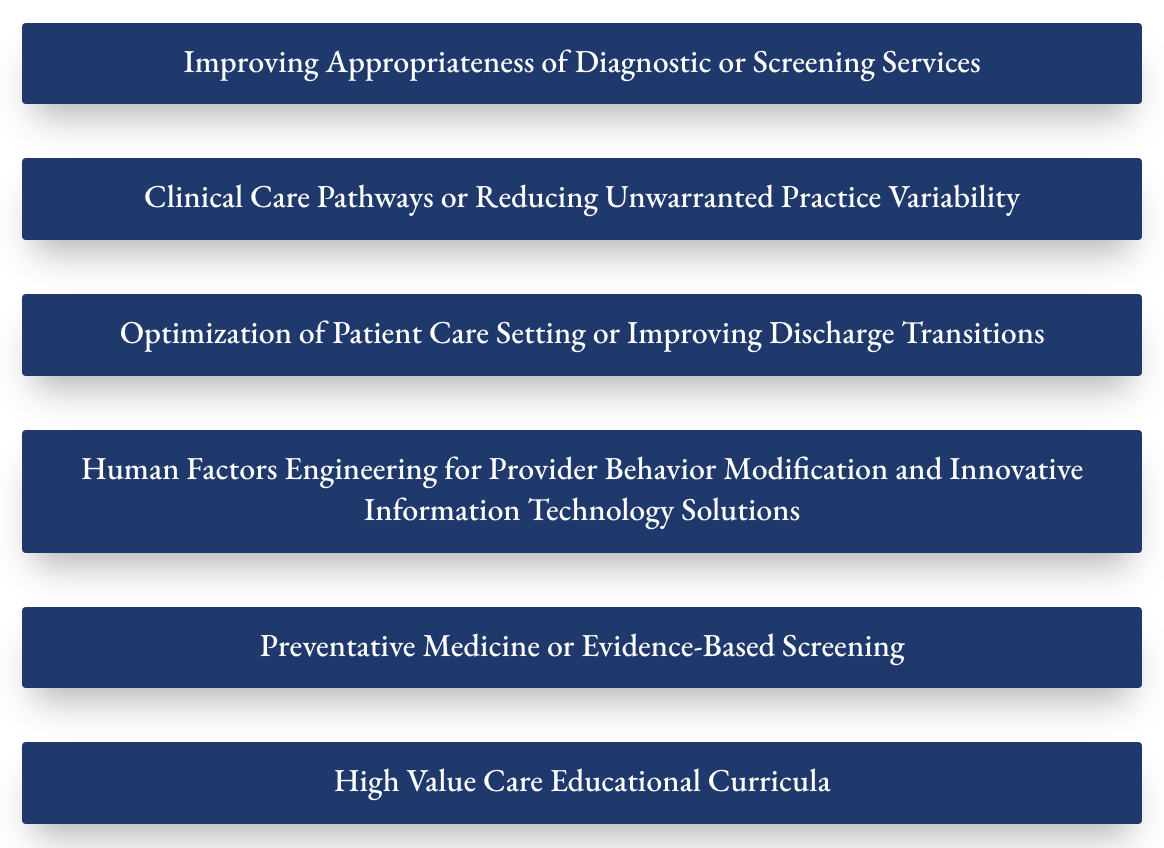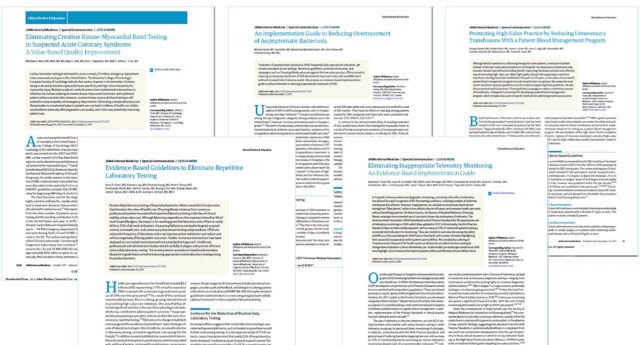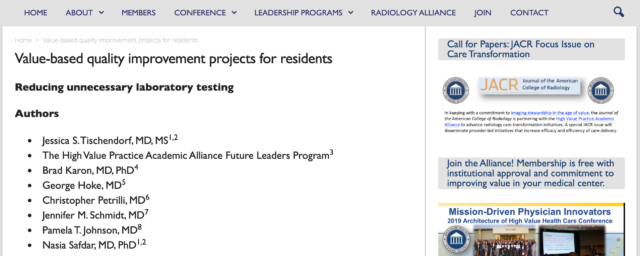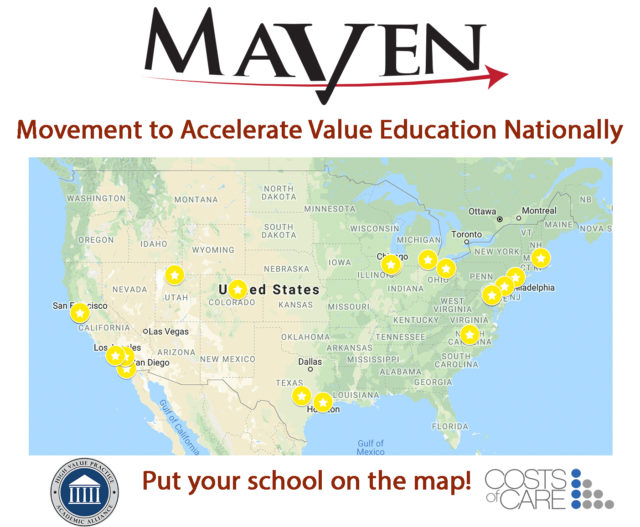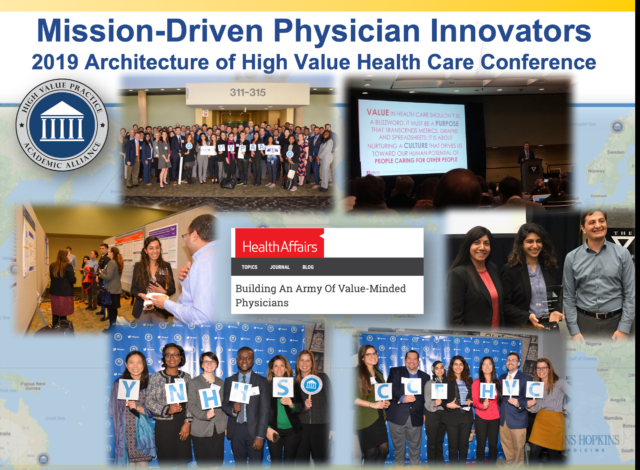From the 2023 HVPA National Conference
Michelle Chen MPH (UC San Diego School of Medicine), Emma Williams BS, Karthik Ramesh BS, Greg Seymann MD
Background:
While a number of U.S. medical schools have begun integrating the topic of value-based medicine into medical student training, the UC San Diego School of Medicine (UCSD) core curriculum has little formal instruction in high-value care (HVC) principles. Low student engagement in extracurricular HVC-related programming was hypothesized to be the result of unfamiliarity with HVC concepts and their relevance. Elective courses, which can be developed by UCSD students and faculty, allow for opt-in instruction on topics not covered by the core curriculum.
Objective:
Our goal was to create an elective course for UCSD students focused on HVC topics that would serve as a gateway to involvement in other HVC-related extracurricular opportunities.
Methods:
We developed an elective course to introduce preclinical students to HVC principles, framed around Dell Medical School’s “Discovering Value-Based Health Care” online modules. To increase interest, we established a Letter of Distinction in Value-Based Medicine (VBM) that required participation in the elective course. The course was designed in a “flipped classroom” format, in which students were given protected time to complete the modules and selected readings before attending a weekly discussion group led by a faculty facilitator and centered around the week’s assigned materials. The course was administered in a virtual format in its first two years during the COVID-19 pandemic; it was subsequently held in-person during the 2022-23 academic year. Leaders of the VBM Student Interest Group at UCSD advertised the course and Letter of Distinction to first-year students during the fall interest group fair and in meetings. We collected enrollment numbers, course rating, and qualitative feedback from students.
Results:
We observed a dramatic increase in the number of enrolled students over the three-year course history, from 10 and 7 students in the first two years, respectively, to 31 students in the elective’s third year. There are multiple factors that may have contributed to this increase in enrollment, including a return to in-person learning, more effective messaging that focused on the opportunity to earn a Letter of Distinction, and attitude shifts among students as a result of the Choosing Wisely Students and Trainees Advocating for Resource Stewardship (STARS) program and VBM student interest group. The course has been consistently highly rated, averaging 9.3/10 across its three years. Students found the flipped classroom format engaging and effective, and many expressed an interest in learning more about real-world clinical examples or actionable means of applying HVC principles in clinical practice.
Conclusion:
An HVC elective course at UCSD was an effective mechanism for growing student interest and engagement in HVC principles. In addition, adopting a flipped classroom format and using publicly available modules markedly simplified development of the course. The opportunity to earn a Letter of Distinction may have contributed to increased enrollment in the elective’s third year. Creating an HVC elective course and incentivizing participation through a Letter of Distinction may be similarly effective at other medical schools.
Clinical Implications:
An elective course may be an effective and sustainable approach for engaging medical students on HVC topics. Providing pre-clinical students with an understanding of HVC will allow them to engage more deeply with these concepts and serve as effective stewards of HVC in their clinical years.
